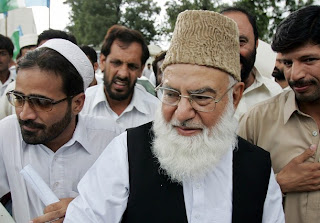However, most of these protests have fallen on deaf ears. A public interest litigation filed in the Punjab and Haryana High Court in September 2008 was dismissed, and the initial stay given on the petition was vacated. The order of dismissal signed by Chief Justice TS Thakur and judge Surya Kant says: “If the Government, the Trust and the Managing Committee have put their heads together and conceived a plan intended to revitalise and preserve the Memorial (sic)for the future generations, we see no reason why the petitioner should find fault with the same, particularly in exercise of the extraordinary public interest writ jurisdiction of the court.”
we see no reason why the petitioner should find fault with the same, particularly in exercise of the extraordinary public interest writ jurisdiction of the court.”
The background goes like this. In 1923, the trust purchased land for the project from the Jallewala Sardars at a hiked-up price of Rs 5.65 lakh. The money was gathered by an international appeal for a memorial issued by Mahatma Gandhi. The British Government in India was keen to turn the Jallianwala Bagh into a cloth market so that all traces of the incident were wiped out. Nationalist leaders, however, formed a committee headed by Madan Mohan Malviya. The land was purchased from the Jallewala Sardars at a hiked up price of Rs 5.65 lakh.
The money was gathered by an international appeal for a memorial issued by Mahatma Gandhi. The upkeep of Jallianwala has been with a Mukherjee family of Bengal. S.C. Mukherjee, an associate of Malviya, was appointed the first secretary of the Trust. It subsequently went to his son and now to his grandson S. Mukherjee. A memorial designed by American architect Benjamin Polk was built on the site and inaugurated by the then-President of India, Dr. Rajendra Prasad, on 13 April 1961, in the presence of Jawaharlal Nehru and other leaders.
A flame was later added to the site. However, the past few decades have seen the monument in neglect and decay with only a fraction of the people who come to the splendorous Golden Temple next doors visiting it. Interestingly, the Jallianwala Bagh National Memorial Committee is headed by the Prime Minister of the country. But in spite of the high profile management, the memorial suffered complete neglect during the past many decades.....Continue
 we see no reason why the petitioner should find fault with the same, particularly in exercise of the extraordinary public interest writ jurisdiction of the court.”
we see no reason why the petitioner should find fault with the same, particularly in exercise of the extraordinary public interest writ jurisdiction of the court.”The background goes like this. In 1923, the trust purchased land for the project from the Jallewala Sardars at a hiked-up price of Rs 5.65 lakh. The money was gathered by an international appeal for a memorial issued by Mahatma Gandhi. The British Government in India was keen to turn the Jallianwala Bagh into a cloth market so that all traces of the incident were wiped out. Nationalist leaders, however, formed a committee headed by Madan Mohan Malviya. The land was purchased from the Jallewala Sardars at a hiked up price of Rs 5.65 lakh.
The money was gathered by an international appeal for a memorial issued by Mahatma Gandhi. The upkeep of Jallianwala has been with a Mukherjee family of Bengal. S.C. Mukherjee, an associate of Malviya, was appointed the first secretary of the Trust. It subsequently went to his son and now to his grandson S. Mukherjee. A memorial designed by American architect Benjamin Polk was built on the site and inaugurated by the then-President of India, Dr. Rajendra Prasad, on 13 April 1961, in the presence of Jawaharlal Nehru and other leaders.
A flame was later added to the site. However, the past few decades have seen the monument in neglect and decay with only a fraction of the people who come to the splendorous Golden Temple next doors visiting it. Interestingly, the Jallianwala Bagh National Memorial Committee is headed by the Prime Minister of the country. But in spite of the high profile management, the memorial suffered complete neglect during the past many decades.....Continue





